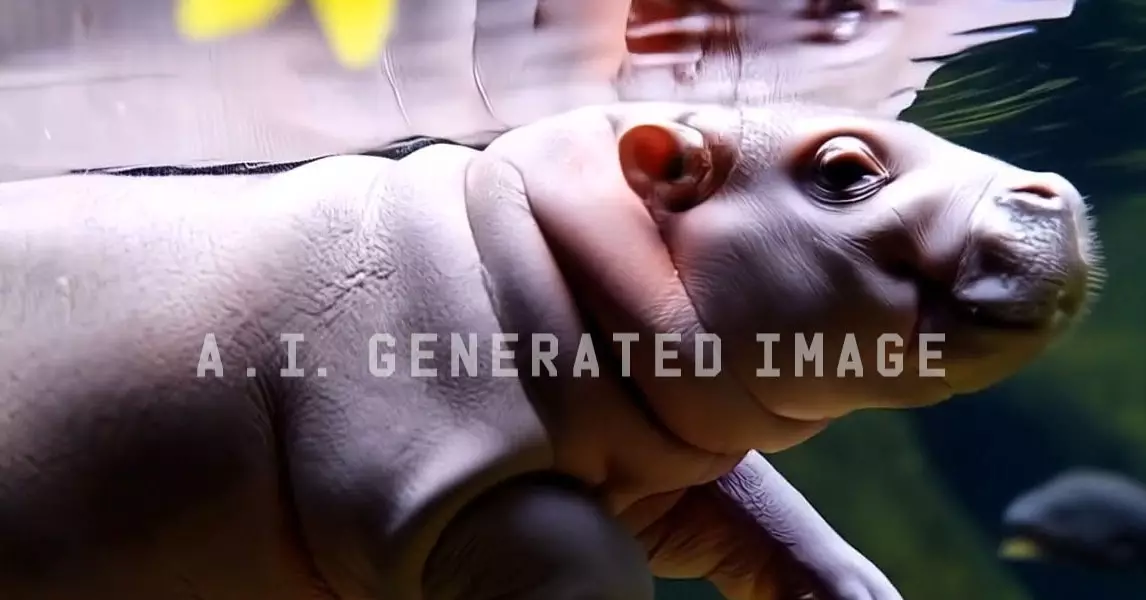In a groundbreaking announcement, Meta has unveiled its latest innovation: Movie Gen, an advanced media-centric artificial intelligence model designed to generate hyper-realistic video clips and audio. This introduction signals a significant evolution in the realm of AI-generated media, cementing Meta’s commitment to enhancing user interactions through technology. Offering a glimpse into its potential, Meta has released several ten-second samples created with Movie Gen, which include an adorable baby hippo reminiscent of the endearing Moo Deng. This advancement builds upon Meta’s recent developments shared during its annual Meta Connect event, where the company showcased newer hardware and its latest version of the Llama language model, Llama 3.2.
Movie Gen boasts a sophisticated approach to video generation, moving beyond basic text-to-video functionalities. One of its standout features is the ability to make precise edits on existing video content. For instance, in an illustrative example, a video clip transitions a woman wearing a VR headset to an appearance that includes steampunk binoculars. This level of precision in editing opens the door for unimagined creativity and customization in video production. Furthermore, Movie Gen’s capabilities extend to audio generation, allowing it to craft soundscapes that enhance the realism of its created videos. Auditory elements, like the splashing of water against rocks or the revving of a sports car, coincide seamlessly with the visual components, enriching the viewer’s experience.
The engineering behind Movie Gen is no simple feat. The video engine comprises a remarkable 30 billion parameters, while the audio model consists of 13 billion parameters. This parameter count serves as a benchmark of the model’s sophistication and efficacy—essentially determining how nuanced the generated media can be. To put this into perspective, consider that Meta’s language model, Llama 3.1, boasts a staggering 405 billion parameters. Movie Gen’s ability to produce high-definition videos lasting up to 16 seconds showcases its potential for creating immersive content.
Although Movie Gen has exciting prospects, it remains in a developmental phase. Meta has yet to publicly confirm when users will have the opportunity to utilize the model, with its announcement subtly hinting at a “potential future release.” This cautious approach mirrors that of other industry giants. Earlier this year, OpenAI introduced its own video model, Sora; however, it remains inaccessible to the public, leaving many wondering when significant advancements in AI video technology will become mainstream.
Meta’s historical background as a social media titan raises intriguing possibilities for the integration of Movie Gen. Speculations abound that Meta could incorporate AI-generated features into its platforms such as Facebook, Instagram, and WhatsApp. Such integration could transform how users interact with content, allowing them to employ these advanced tools creatively and spontaneously.
Competition in the AI video-generating space is heating up, as exemplified by Google’s plans to leverage its Veo video model within YouTube Shorts next year. The ongoing race among tech companies emphasizes both the market’s demand for innovative content creation tools and the challenges associated with making these tools accessible.
Despite the excitement surrounding Movie Gen, important questions linger regarding the ethical implications of AI-generated content. Meta’s announcement was notably vague concerning the training data utilized for Movie Gen, stating it relied on “a combination of licensed and publicly available data sets.” This ambiguity underscores ongoing debates within the industry regarding the ethics of sourcing data for AI training. The delicate balance between fair use and intellectual property rights continues to challenge developers and regulatory bodies alike.
As the AI landscape evolves, individuals intrigued by video generation can explore alternative solutions offered by smaller startups like Runway and Pika. These platforms make available experimental AI video tools, allowing users to engage with AI-generated content playfully and creatively, albeit on a smaller scale.
Meta’s introduction of Movie Gen represents a paradigm shift in AI-generated media. While the world awaits broader access to this innovative tool, the implications for creativity, social media interaction, and ethical considerations are profound. As technology continues to advance, the integration of AI in media production will no doubt open doors to new forms of artistic expression and redefine how audiences engage with content across digital platforms.

